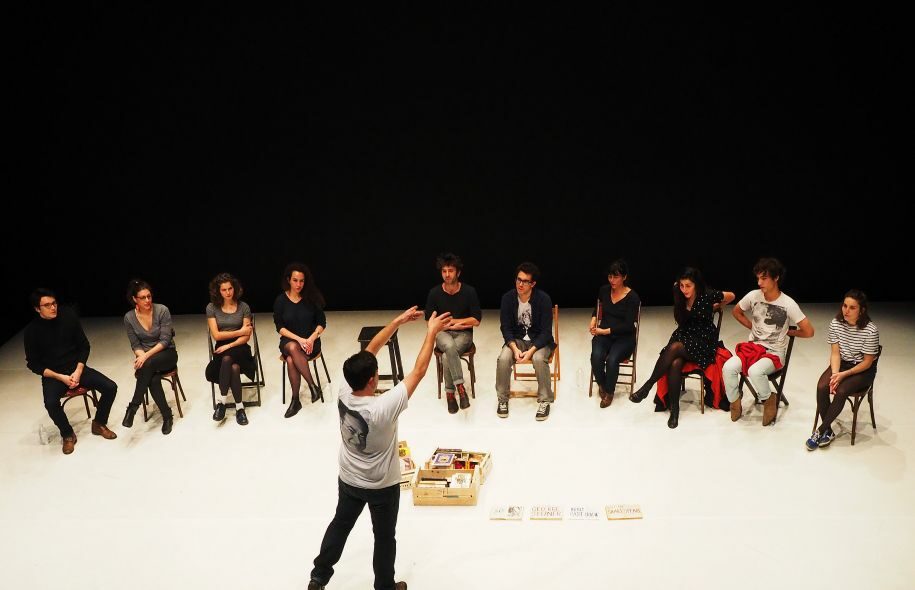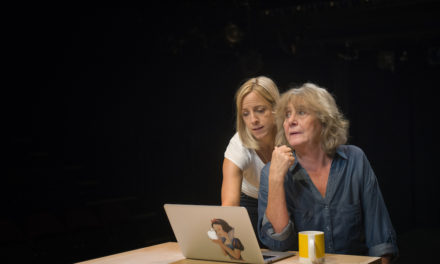Grandma Cândida died some months ago, and her grandson, the Portuguese playwright Tiago Rodrigues, announced it on his Facebook page. Not because he wanted to share his personal life, but because in the last year his grandma came to be beloved by everyone who went to see his play By Heart. Tiago Rodrigues, who directed, performed, and wrote the play, sets a fully rendered homage to the human memory, to the words we keep in our hearts so we will never forget them.
I first went to see the play in Lisbon, at Teatro Maria Matos. I remember sitting in the audience and realizing that the ten chairs on stage could mean only one thing: audience participation. When we realize that we might just have to go on stage, the primary feeling is fright. Leaving our comfortable and secure chair behind means that we won’t know what is going to happen, that we will have to let go of all control. And, let’s be honest, most people don’t enjoy this kind of experience. However, for me, since Rodrigues’s work has always fascinated me, I imagined this could lead to a fantastic adventure. Therefore, when the moment came to ask ten people to stand and go on stage to “help” him, my legs moved faster than I wanted them to.
After choosing a chair, we were told that we would be on stage throughout the play and that, during that time, we would learn Shakespeare’s Sonnet 30 by heart. Being himself a director, Rodrigues showed a remarkable way of teaching and guiding his own little fresh actors. Some of us laughed because we couldn’t get it right, and some of us wore looks of great concentration as if we were being evaluated, but the feeling I enjoyed the most was the sensation of almost being alone with the group and the actor. It seemed that, even though he was facing the audience, he was only telling us the stories that made the play alive. That’s when we also learned about Grandma Cândida and how, after many years of being a passionate reader, she slowly began to lose her vision. In one of Tiago’s visits to her nursing home, she asked him to choose one book that she could learn by heart and keep those words with her even after she could no longer see. Being on stage immerses the participant fully in the story; we want to feel connected with Cândida, and we want to learn the sonnet because of her.
During the play, the participants are asked to hold books, on which are written words in big, bold lettering so the audience can read them; we are also asked to show the audience we are learning what we compromised for when we sat on those chairs; we are invited to be the guardians of a sonnet that if we were living Fahrenheit 451’s reality would be destroyed; we are demanded to keep the words alive in our hearts.
Rodrigues is a great director, but what makes him greater than life is the way he masterfully writes about everything and creates characters with whom we sympathize and even fall in love with, like Judy Garland, the main character’s teddy bear, in Sadness and Joy in the Life of Giraffes (2011).
After being given a small piece of edible paper with the sonnet, each of us recites the sentence we learned by heart since the beginning of the play, and just like a maestro, Rodrigues turns our words into something alive, something that will remain in each of us.
This post was written by the author in their personal capacity.The opinions expressed in this article are the author’s own and do not reflect the view of The Theatre Times, their staff or collaborators.
This post was written by Cátia Faísco.
The views expressed here belong to the author and do not necessarily reflect our views and opinions.


















